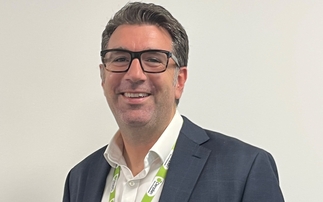With the corporate healthcare cash plan market going from strength to strength, Johanna Gornitzki discovers a sector filled with new business opportunities for advisers
In the past, a generous pension scheme was usually considered to be the ultimate employee benefit. Today, however, as times are changing, employers need to look outside the box in terms of what they can and should offer their workforce.
And while the need to protect someone's health and make sure this same person will be provided for in old age are effectively two separate benefits, the fact is that more people believe they will have to continue to work beyond traditional retirement age.
Helping hand
It has therefore become more crucial than ever to remain healthy for as long as possible. And with the NHS still walking with a limp, employees have started to turn to their employers for a helping hand. On the back of this, the healthcare cash plan market has finally found a niche in which to flourish.
Indeed, sales of cash plans, which are either company paid by salary deduction for a group of employees, or through a personal scheme, have boomed in recent years.
Between 1999 and 2002, sales of corporate cash plans almost doubled - from 246,000 to 446,000 - according to figures from Laing & Buisson's Health & Care Cover UK market sector report 2004. While sales of corporate cash plans still only accounted for 15% of total healthcare cash plans sales in 2002, this is a major leap from the 8% market share it achieved in 1999.
As an example of the massive growth experienced in recent years, Westfield Health, which is one of the major cash plan providers in the UK, reported that of all new cash plan business it generated in 2003/04, 61% was company paid business - a significant increase on the 25% figure recorded the previous year.
Jill Davies, executive director for Westfield Health, attributes this growth to the fact that more people have become aware of what the product offers. "Health has always been high on the agenda, but in the past the product was never fully understood," she says.
Jeremy Chadwick, group head of public relations and communication for HSA, agrees, adding that cash plans have also become more popular as the NHS continues to face a number of problems, particularly as the cost of everyday healthcare, such as visiting the optician, continues to rise.
Ailing private medical insurance (PMI) sales have also been suggested as a contributor to the growing interest in cash plans. While this should not be the case, as the two products offer completely different benefits, they do compete on cost.
Invented before World War II, healthcare cash plans were effectively promoted as a type of medical insurance, which provided policyholders with cover for medical treatment at certain hospitals. Today however, an average cash plan tends to offer help with everyday healthcare expenses such as a visit to the dentist or needing time off work for maternity leave.
Typically, it fulfils a person's basic need for medical healthcare. As Davies explains: "We offer basic treatment and diagnostic primary treatment and help with everyday issues such as paying for dental treatment."
Apart from offering employees a sought after benefit, healthcare cash plans also help employers combat one of their current biggest management issues, namely, the cost of health-related staff absenteeism.
Darker picture
In Britain today, the cost of absence is staggering. According to the Confederation of British Industry (CBI) Absence and Labour survey 2003, the cost of absence to business reached £11.6bn in 2003, with 176 million working days lost due to ill health. Others paint an even darker picture. Mercer Human Resource Consulting, for example, believes this estimation is well below the 'true' figure, which it suggests could be as much as £34bn - three times higher than the figure estimated by the CBI.
Bill Gaywood, chief executive for Medicash, argues that healthcare cash plans can be used as an absence management tool in order to both prevent absenteeism as well as help unwell employees to get back to work sooner.
In terms of prevention, he suggests that the benefit encourages people to become more proactive and get involved in their own health.
"Those that have joined a healthcare cash plan do not have to worry about how they will pay for treatment so they will visit a dentist or optician regularly rather than when they desperately need to or can afford to. In theory this should decrease absence in the workplace because by getting treatment straight away they can nip any healthcare problems in the bud. Those that only get treatment when they can afford to run the risk of letting their problems become more acute and, as a result, they take longer to cure," says Gaywood.
According to the Health & Safety Executive's latest occupational ill health statistics, the most common type of work-related illnesses are musculoskeletal disorders and mental illnesses such as stress. Problems associated with these conditions can often be prevented if treated early. As Gaywood suggests: "the answer to most musculoskeletal and stress associated problems is prevention."
Number of days absent could also be reduced by offering cash plans as an employee benefit. "If you could reduce stress when it is still acute, before it becomes chronic, it could reduce the number of days someone needs to take off work," says Davies.
"Overall, it should be an incentive for an employer that it will reduce health problems and bring them a happier workforce," she adds.
Clearly, this has been taken on board by a number of employers, as reflected in figures from Laing & Buisson showing that in 2003 £62.5m was being paid into corporate cash plans - more than double the £25.8m invested only four years earlier.
However, despite this growth, Gaywood reveals that only 2.5% of total sales in 2002 were intermediated. He explains: "Only a fraction of what is being paid into cash plans is received by brokers as commission because a very low percentage of sales are intermediated, the majority goes straight back to the providers."
That means advisers are missing out on a large chunk of the profit that could be derived from these products. Gaywood says the reason for this is that intermediaries believe they cannot earn much commission from recommending cash plans. But this is not true, he argues.
"Healthcare cash plans and private medical insurance commission levels are similar, so if there's a £20,000 budget allocated to employee benefit, it doesn't matter if they decide to sell a company 20 private medical insurance policies or 200 healthcare cash plan policies, their commission will be the same," says Gaywood.
Opportunities
But while in the past, advisers have paid little attention to the corporate cash plan market, growing interest in the product suggests they can no longer afford to turn their backs on the opportunities this niche market is now offering.
Insurers hope intermediaries won't overlook this. "Providers would welcome paying commission to brokers because it would mean the sale of more cash plans. It is as simple as that," says Gaywood.
Agreeing with Gaywood, Davies emphasises that there is a very good opportunity for advisers in this market. However, if they decide to ignore this, employers will turn elsewhere. "If the adviser is not there to offer the product the market will go direct to the insurer," she warns.
Looking ahead, the future looks bright for the corporate cash plan market with major protection players suggesting that sales will continue to rise. As for advisers, it would be wise to get involved in this lucrative area, as the healthcare cash plan market offers a business opportunity too good to be missed.
COVER notes
• Between 1999 and 2002, sales of corporate cash plans almost doubled - from 246,000 to 446,000 - according to figures from Laing & Buisson's Health & Care Cover UK market sector report 2004.
• Ailing private medical insurance (PMI) sales have been suggested as a contributor to the growing interest in cash plans.
• Apart from offering employees a sought after benefit, healthcare cash plans also help employers combat one of their current biggest management issues, namely, the cost of health-related staff absenteeism.











